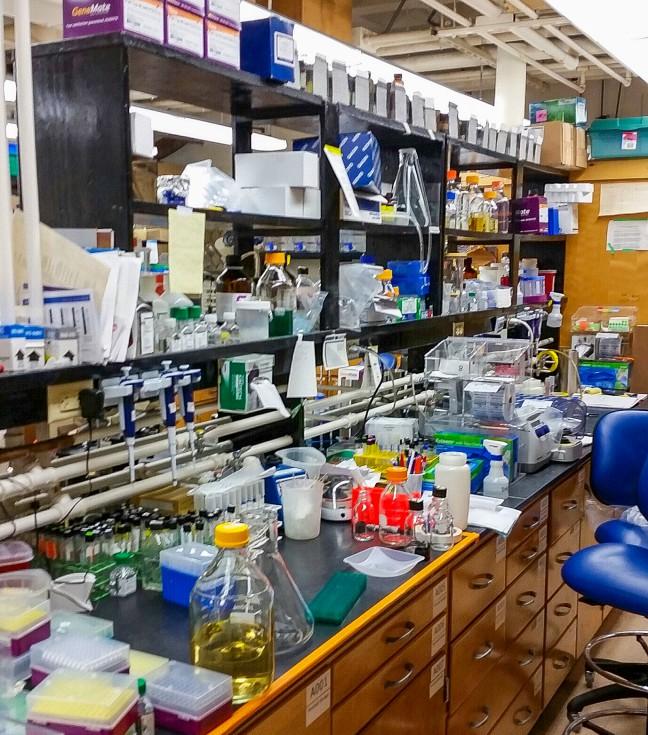Like many of my fellow Badgers, I am constantly impressed by the incredible production of academic research that is undertaken and led by some of the greatest minds in the country at University of Wisconsin. Ranked fourth nationally in 2013 for annual research expenditures, UW places an emphasis on the importance of discovery and furthering the Wisconsin Idea.
As an out-of-state student, it was this demonstrated value that ultimately convinced me to forego less expensive opportunities at in-state schools. However, the proposed budget cuts have left me concerned about the ability to maintain UW’s tradition of excellence. In addition to finding ways to compensate for this blow to the UW system, there is also a campus push to address the crisis in U.S. research, especially within the biomedical field.
Initially prompted by severe decreases in the National Institutes of Health that funds to research institutions and universities across the country, scientists everywhere are facing hyper-competition for limited resources. Thus, they are forced to waste valuable time writing grant proposal after grant proposal to keep their labs afloat. While in past years there has been a boom in biomedical research funding, increase in development could not be sustained on a long-term scale since money is disappearing.
The money that the University of Virginia received in awards dropped from $159 million to $110 million from 2005 to 2013. Baylor University of Medicine experienced a similar downsize from $252 million in 2002 to $184 million in 2013. At one point, the NIH’s annual budget surpassed $30 billion yearly. With the “golden age” of biomedical science waning however, universities and institutions are unable to maintain the facilities they once built and can’t keep as many scientists to staff the new labs. NIH funding is now being used for scientists’ salaries and repaying building loans.
UW has certainly not been exempt from this trend. From 2009 to 2010, the university received $798 million in federal research awards. By 2012 to 2013, the number dwindled to $620.4 million. With research expenditures around $1 billion in 2013, there is a high expectation for scientists to be able to attain competitive grants at the commencement of their work. Many find themselves unprepared for what has become the business side of research, no matter how rigorous their graduate school training was. Labs find themselves at an unfortunate precipice in seeing potential innovative research projects and fearing the inability to fund them.
Interim Vice Chancellor for Research and Graduate Education Marsha Mailick recognizes these challenges and Chancellor Rebecca Blank has initiated campus-wide discussions to be held starting this month and continuing through May, culminating in a national conference at the University of Michigan. Possible solutions to this crisis have been floating around for years with the bust of funding following an initial rise.
I believe the composition of the workforce will have to change. Many of the daily operations in a lab do not necessitate a PhD; a master’s degree will suit just fine. With mostly staff scientists carrying on the research, less money would have to be appropriated to support salaries.
This of course brings us to the issue of laying off scientists. While I and others are unsure as to the path UW will take to adapt to the crisis, the possibility of a smaller staff size will call attention to the vast numbers of graduate students facing unemployment. Staffing cuts will also inhibit labs from recruiting the best young scientists to further their work.
No matter what the budget cuts and reductions in funding mean for UW, I firmly believe that protections must be allowed for biomedical research. Invaluable contributions have been made to the fields of medicine and technology that have changed or have the potential to change human life. The prospect of labs closing hinders this continued pattern of scientific breakthrough. I cannot estimate the size of the impact this government funding will have on Madison; but it’s certainly enough to call for these discussions to occur, leaving me more than a little concerned.
I’m uncertain as to the route UW will take in dealing with the damage this decrease in funding has caused, but I’m confident that the tradition of excellent research will guide our university leaders in the right direction to find solutions.
Megan Stefkovich ([email protected]) is a freshman majoring in biology.








